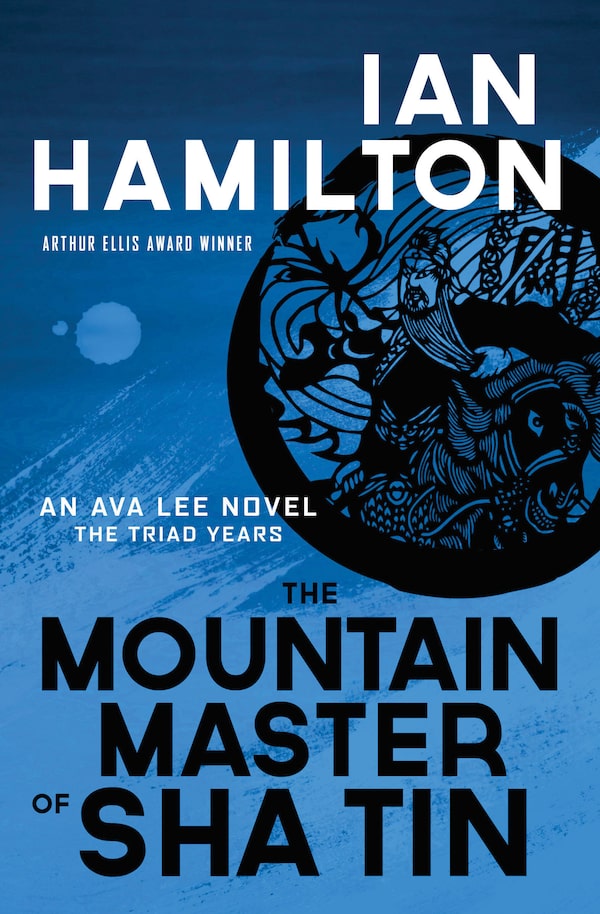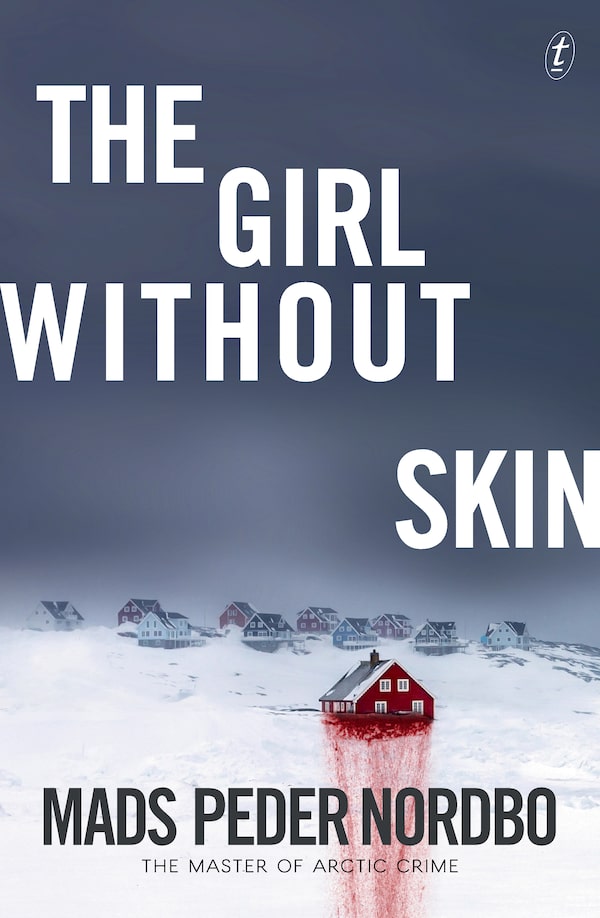
Handout
Wherever She Goes, by K.L. Armstrong, Doubleday Canada, 300 pages
This is a first novel under the pseudonym K.L. Armstrong; it’s one of the best books of the summer and a sure nominee for an Arthur Ellis Award for excellence in Canadian crime writing. Google tells me that the real writer is Kelley Armstrong but all the publisher will say is that it’s by a popular author living in Ontario. Whoever, this is the runaway book of the summer.
Aubrey Finch is a single mother with a history. We don’t know what it is at the beginning, which starts with a simple statement: “I have made mistakes in my life.” Those mistakes have consequences. Finch’s marriage is over and we learn that she walked away without getting legal custody of her daughter, Charlotte. She trusted her husband, Paul, to carry through with his co-parenting promise. Six months on, it’s not happening. Finch is preparing to go to court.
Then, on a routine jog in the park, she sees a boy being hustled into an SUV. It’s clear that the boy is being forced. Is she witnessing a kidnapping? Or worse? She runs after the car, then returns and tells the police. They assure her that all resources will be used. Child snatching is a crime that affects everyone.
But no one else saw the boy. And an investigation doesn’t turn up any missing boy. Finch recalls the boy and his mother from another park visit but no woman of that description seems to be around and no one is coming forward. The police begin to doubt Finch, since she seems a bit off-kilter herself. After all, if she were a reliable person, wouldn’t she have custody of her own child?
As everyone begins to doubt Finch’s sanity, events inevitably affect her bid for custody of Charlotte. She will have to find the missing boy, or at least prove that he exists.
This is the perfect guest gift for that cottage invitation. And you can read it in a weekend.

Handout
The Mountain Master of Sha Tin by Ian Hamilton, House of Anansi, 328 pages
At book No. 12, a lot of series lose steam. Characters get tired and plots start repeating. That’s not the case for the Ava Lee series, though. Whether it’s the Triad plot lines or the elegant detective skills of Lee, Ian Hamilton has managed to maintain a freshness to his stories. The Mountain Master of Sha Tin is as slick and smart as The Water Rat of Wanchai, the first Ava Lee novel.
The setting is Hong Kong. Lee is there to assist her mentor and friend, the mountain master Xu, who is recovering from a serious bout of meningitis. While Lee hopes for a quiet time, a Triad war breaks out. Lee’s old enemy Sammy Wing sees an opening to take over his former territory of Wanchai. Wing has tried to kill Lee before but Lee puts her trust in her negotiating skills, not her firepower.
When six Wanchai “soldiers” are kidnapped, it appears that Wing’s forces may win the day. The men will be killed if all of Xu and Lee’s people don’t immediately leave Wanchai and hand it over to Wing. When Lee asks for a meeting, Wing agrees and sends her a box with six fingers in it. This will be the negotiation of Lee’s lifetime.
This is one of Canada’s best series by one of our best writers.

Handout
Almost Midnight, by Paul Doiron, Minotaur, 288 pages
Few writers can summon a place as well as Paul Doiron depicts rural Maine. Settle down with this book and find yourself foraging along mountain roads through stands of sugar maples, old-growth forest and newly planted pines. The backdrop is the sigh of wind on a lake or the ring of birdsong. He has Raymond Chandler’s touch for the tiny detail that makes a place central to a story. And he does it all in great tight prose, not a wasted sentence in a slim 288 pages.
This 10th Mike Bowditch novel is one of the best of the series. Bowditch is now a warden investigator in Maine, where game wardens have police powers. But his life isn’t exactly settled. His long-time companion is gone; moved to Florida for good. A new woman in his life wants a bit more than Bowditch is willing to give. He’s on a short vacation, fishing, to think about things.
Then a call comes from the state prison; his friend Billy Cronk wants him to visit. Bowditch owes Cronk. He’s in jail for saving Bowditch’s life. He’s also a rambling paranoid war veteran with PTSD, a volatile family life and four more years to serve on his sentence. He wants Bowditch to dig into the background of a correctional officer named Dawn Ritchie. Before Bowditch can do it, Ritchie is nearly killed in a fight between two inmates. Her saviour is none other than Cronk, who’s lauded by the media and in line for a government pardon, but the night before he’s about to be freed, Cronk leaves prison and goes on the run.
This is all part of a sophisticated and fascinating plot that weaves back and forth through the Maine outback, where a local bully is threatening Mennonite farmers and Bowditch’s wolf-dog Shadow has been shot with an arrow from a crossbow and that sends him in search of the person who fired it. As the action unfolds, so does Maine in spring, with ice on a lake and buds on a tree.
Doiron, again, gives the reader a rare treat with a great story and wonderful settings.

Handout
The Girl Without Skin, by Mads Peder Nordbo, translated by Charlotte Barslund, Text Publishing, 356 pages
Reader, be warned. This one is not for the squeamish. It begins with what may be a Viking mummy ground in the crevasse of a Greenland glacier – then moves to murder with a man carved from pelvis to neck and flayed with an ulo, a Greenland native implement used to scrape the flesh and fat from hides. It is not ordinarily used to kill, but in this context, it is part of a story that marries the history of Greenlanders and Danes from the old world to the modern.
The setting is Nuuk, the capital of Greenland, and the central character is journalist Matthew Cave, son of a native Greenland mother and an American soldier who abandoned the family. Cave’s wife and unborn daughter were killed in a car accident in Denmark and his move to Greenland is a bit of escape, a bit of recovery. When he heads to the glacier to report on the mummy, which he and his editor hope will make a great international scoop, he doesn’t expect to find the mummy missing and a very dead policeman in its place.
Nordbo obviously wrote this book for an audience outside of his native Denmark. There is a lot of fill in to explain the complicated relationship between Greenland and Denmark. He also has to explain Greenlanders’ customs and the fact that rural tribal groups were shuttled into city apartments that quickly turned into slums where the old order collapsed and no new order was born. That led to a murder 40 years ago, unsolved and unreported.
The new murder is related, but it takes Cave a lot of slogging to uncover the people and clues. He’s assisted by a marvellous female character named Tupaarnaq, Nordbo’s Danish version of Lisbeth Salander, the Dragon Tattoo girl. Tupaarnaq has more tattoos, shoots straight and wields a mean harpoon.
This is the first Nordbo novel to be translated into English and I suspect Tupaarnaq and possibly Cave will return.

The Associated Press
Knife, by Jo Nesbo, translated by Neil Smith, Random House Canada, 452 pages
Fans of the Harry Hole series are going to be stunned by this novel, the 12th in the Hole series. Jo Nesbo has sent his central character into a spiral of booze, doom, depression and death. Hole, whom we’re accustomed to finding rather charming, is limp and soggy, and sunk in grief over the loss of his great love, Rakel. That’s the text and subtext of this novel which, nevertheless, manages to keep the reader reading as Hole manages to intuitively solve a case.
The plot is ably assisted by Hole’s old nemesis, Svein Finne, recently released from prison and centred on recovering his old power and the chaos that goes with it. He has Hole in his sights and he knows that Hole just may not be able to weave his way out of the traps he’s setting.
The plot is a good one, as solid was any reader could want and Hole remains a charmer, full of good ideas and clever detective skills but the booze, the despair, and more booze is hard to take and, after several chapters, readers will want to escape. Which is part of the strange charm of this book. It’s like living with a real live depressed alcoholic, where you hope this drink is the last and that the person will see how destructive his behaviour is to him, to his loved ones, to his readers.
Strange as it seems, Nesbo manages to pack all that into a long novel about depression and regret, and make the reader love it. This is definitely one of the best of the Harry Hole novels.

Handout
The Turn Of The Key, by Ruth Ware, Simon & Schuster, 352 pages
The “bad mad nanny” is an aging trope in detective fiction. Ever since Rebecca de Mornay’s potboiler The Hand That Rocks The Cradle sent a frisson of fear through mommies everywhere, the idea that the woman watching your baby might not be safe has made a niche market for nanny cams shaped like dolls and teddies, and now, surveillance by iPhone.
We forget, however, that the really scary nanny tale began a century ago with The Turn of the Screw by Henry James. Not a bad nanny but a frightened one, watching two children whose bodies are literally inhabited by evil incarnate. That makes the modern nanny with a secret as tame as Agatha Christie’s Miss Marple. And that’s where Ruth Ware has placed her superb book referring back to James and with a nanny who has a secret but who’s also faced with evil.
Rowan Caine has a reason to head to the country and when a live-in nanny job appears, with a huge salary to boot, she’s ready to pack and head for the highlands of Scotland. There she finds Heatherbrae House, a “smart home” with all the electronic bells and whistles and what appears to be the perfect family. But we already know that it doesn’t end well because the novel begins with Caine writing to her lawyer from prison. What crime was committed? Did she do it?
Ware is a cunning author with many books and a bag of tricks up her sleeves. Heatherbrae House doesn’t seem to like its revamp of modernism. And there are those stories. It could be gossip or real or something totally Other. Ware never loses track of her storyline and I found this one irresistible from first page to final line.
Expand your mind and build your reading list with the Books newsletter. Sign up today.